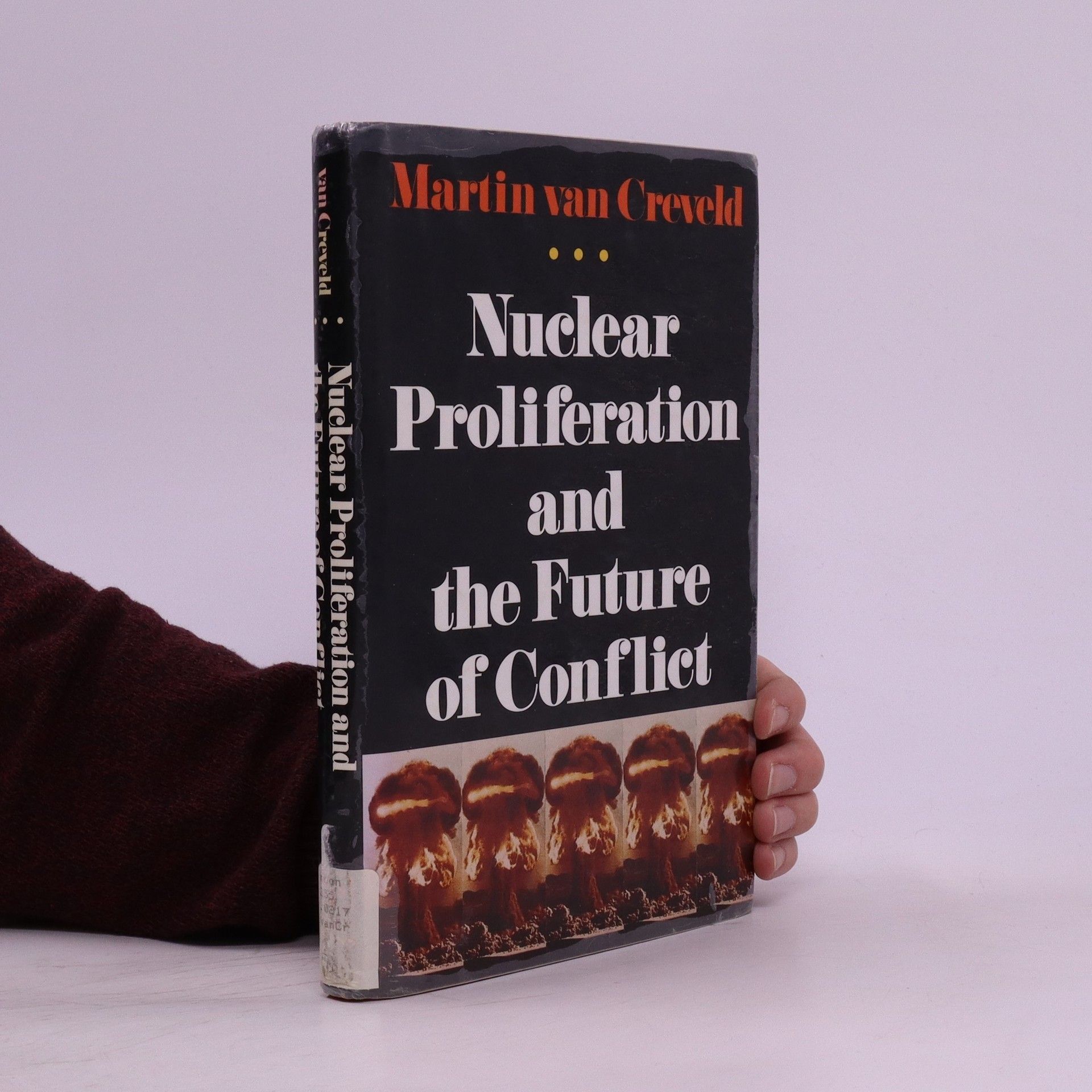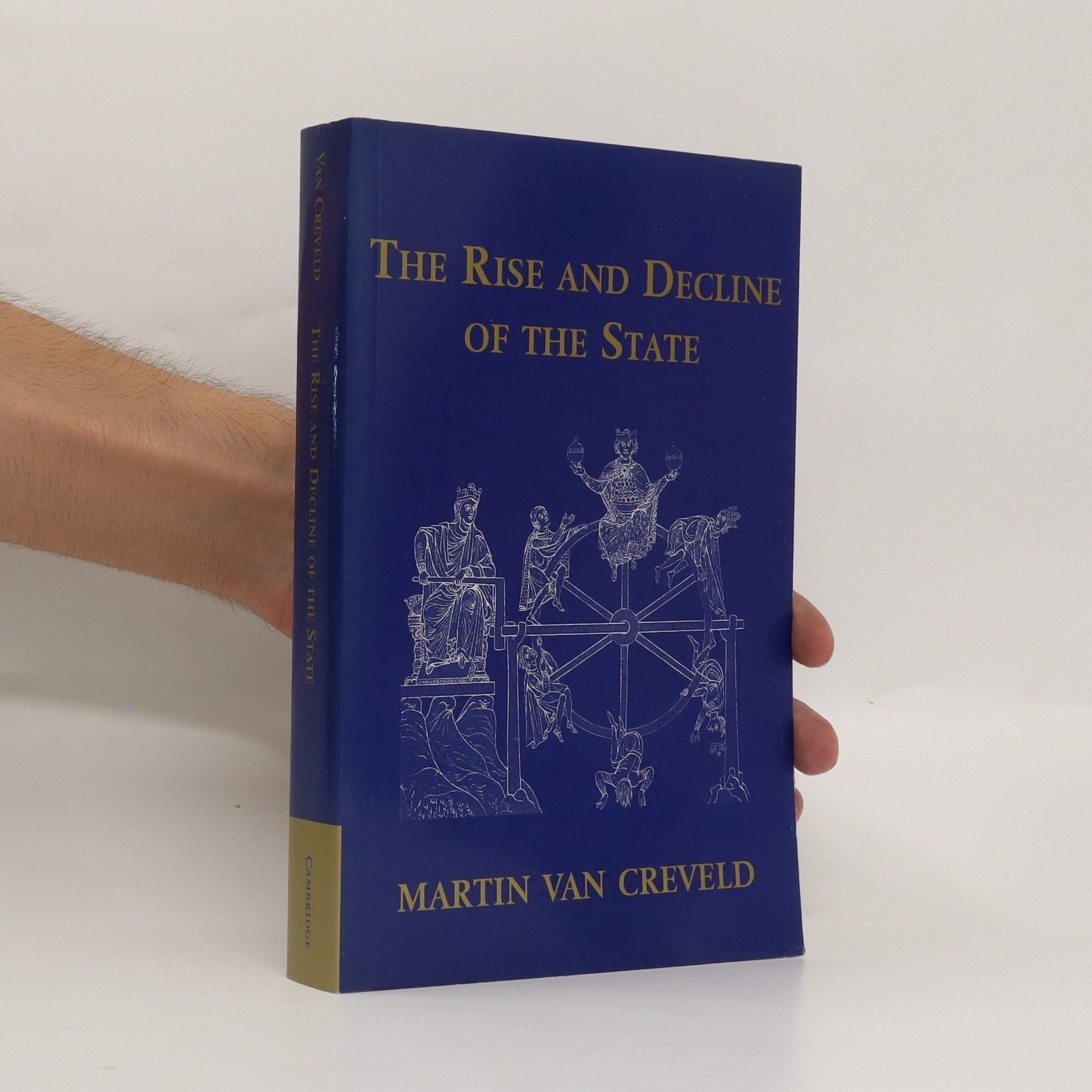This unique volume traces the history of the state from its beginnings to the present day.
Martin Van Creveld Libri
Martin van Creveld è uno storico e teorico militare israeliano il cui lavoro approfondisce le complessità della guerra, della strategia e della logistica. Esamina criticamente l'evoluzione del conflitto e l'importanza spesso trascurata delle linee di rifornimento per il successo militare. Le analisi di Van Creveld offrono una profonda visione delle strutture di comando e dello sviluppo degli stati attraverso una lente militare storica. I suoi scritti estesi forniscono una profonda comprensione della meccanica fondamentale della guerra.






Instead of fearing a nuclear war between two superpowers, the world now watches smaller conflicts warily. This book addresses the question: Will fear and respect for nuclear weapons be sufficient to prevent their use despite the implacable hatred that characterizes many regional rivalries?
Martin van Creveld is a prominent military historian, and his work serves as a vital supplement to Clausewitz, especially in light of technological advancements since the Napoleonic era. While classic texts like The Art of War and On War are widely recognized, numerous lesser-known military writings have emerged over the past 2,327 years. Authors such as Vauban and Douhet focused on specific war aspects, while others like Onasander and Jomini addressed broader strategies, all aimed at enhancing military effectiveness. Dr. van Creveld, a Professor Emeritus at the Hebrew University in Jerusalem, is well-equipped to explore the history of military strategy, having authored over twenty influential works, including Technology and War and The Transformation of War. His concept of “nontrinitarian” warfare and contributions to 4GW literature underscore his expertise. This comprehensive history begins with Chinese military literature and progresses through Greek, Roman, and Byzantine texts, covering the Middle Ages and key figures from Machiavelli to Frederick the Great. The narrative continues with naval warfare literature and early 20th-century strategists like Moltke and Liddell Hart, concluding with modern concepts such as Mutually Assured Destruction and insurgency. This concise yet extensive overview serves as both an introduction for newcomers and a valuable summary for seasoned experts, illustrating the evolution of military th
Fighting Power
- 198pagine
- 7 ore di lettura
Analyses the performance of two key parties engaged in fighting during World War II.
Supplying War
- 300pagine
- 11 ore di lettura
A second edition of this classic work, commenting on the role of logistics in warfare.
Air Power and Maneuver Warfare
- 288pagine
- 11 ore di lettura
In the form it has finally assumed, this volume falls into two very different parts. Part 1 was written by Dr. Steve Canby, Ken Brower, and Martin van Creveld at the invitation of Air University, Maxwell Airforce Base, Alabama. It represents the authors joint attempt to clarify the relationship between air power and maneuver warfare since 1939, a subject that derives its importance from the fact that maneuver warfare has been the U. S. Army’s official doctrine since the early eighties and remains so to the present day. By contrast, part 2 was added ex post facto. It contains the collective wisdom of the military doctrine analysts of the Air University on the same subjects, as well as the way in which the authors in the first section have presented them. The reader is invited to wade through the entire volume and draw his/her own conclusions about the past, present, and future of air power on the one hand and maneuver warfare on the other, assuming indeed that they do have a future.
At a time when unprecedented change in international affairs is forcing governments, citizens, and armed forces everywhere to re-assess the question of whether military solutions to political problems are possible any longer, Martin van Creveld has written an audacious searching examination of the nature of war and of its radical transformation in our own time. -- Published description
Seeing into the Future
- 288pagine
- 11 ore di lettura
A compelling guide to prediction, a subject that is vital to modern existence.
Wargames
- 342pagine
- 12 ore di lettura
Explores the history and development of wargames, and how they relate to real war and society in general.
The Culture of War
- 485pagine
- 17 ore di lettura
A renowned military historian explores the concept of the culture of war that details the human fascination with the art of war, describing such facets of the phenomenon as war games, literature, ceremonies, customs, art, literature, and other examples. 15,000 first printing.
